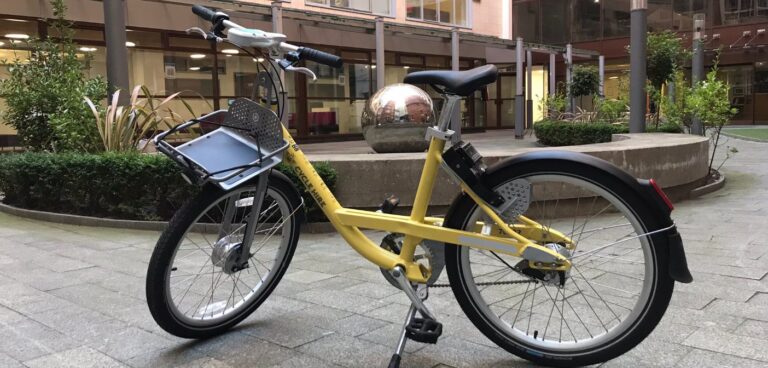Greater Manchester has set out an ambition to become the first city-region to deliver a carbon neutral transport network.
Under the plans, the city region’s bus fleet will be 50% electric by 2027 and totally electric within a decade, a move that would reportedly reduce carbon emissions by 1.1 million tonnes. The Greater Manchester Ring and Ride fleet will also transition to zero-emission technology by 2027.
Metrolink, the city region’s tram network, currently runs on totally renewable energy, and funding has recently been secured to the develop the next stage of plans for expanding the network.
Furthermore, Greater Manchester has expanded its publicly-owned EV charging network by 15%, combining with private sector networks to make around 360 publicly available EV chargers with approximately 700 connectors across the city-region.
Transport commissioner Chris Boardman said: “Full electrification of our buses, continued delivery of the UK’s largest active travel network and the introduction of the largest clean air zone outside London will be a massive boost to Greater Manchester’s green credentials.
“I’m absolutely delighted that our world class active travel network is now taking shape. This year is a game changer for Greater Manchester: the plan is becoming a reality. Our spend per head on active travel in Greater Manchester is currently around £18 per year – that’s almost at the levels enjoyed in Denmark and The Netherlands.
“I’m hugely proud of what we’ve delivered so far to make our city greener and healthier. This commitment for a carbon neutral transport network is proof yet again of our unwavering dedication to a 10-year mission of making the city-region one of the best places in the world to travel on public transport, on foot and by bike.”
Since Greater Manchester launched its active travel vision in June 2018, around £70m of schemes have been completed or are under construction. To encourage more walking trips, the city region has published a report that shows strong evidence for zebra markings to be authorised for use on side roads to increase safety and the number of people walking to school, work and the shops.
The city-region is also introducing the UK’s largest clean air zone outside of London covering almost 1,300km2 and coming into effect in May 2022. The first fleet of Greater Manchester’s Bee Network cycle hire bikes – one of the largest hire schemes outside London – is also carbon neutral.
Boardman, added: “The new hire cycles will play a key role in the integrated transport network we are establishing in Greater Manchester and will not only help to tackle carbon emissions, they will also help to reduce congestion.
“We’ve taken the time to look at exactly how the scheme should work and have invested in ensuring the bikes and infrastructure are high quality and there are the resources available to manage it effectively on a day-to-day basis, delivering a great level of customer service.”
The public trial of the bike scheme began on 18 November, with people able to access bikes along Oxford Road in Manchester city centre, at the University of Salford and at MediaCityUK. The trial and use of the bikes will be fed into the approach for the full scheme when it launches in June 2022.
The Bee Network Cycle Hire scheme will be managed by cycle hire provider Beryl. Bikes will have to be collected and returned to CCTV-monitored cycle hire stations, with penalty charges applying if they are not returned to a cycle hire station. If a station is full, it will be possible to securely lock the bikes within the geofence of the station.
The bikes are GPS tracked and will be monitored by a dedicated on-street team. They have been designed to be tamper-proof and a stolen bike alert system has been agreed with GMP – meaning they can be easily spotted.





